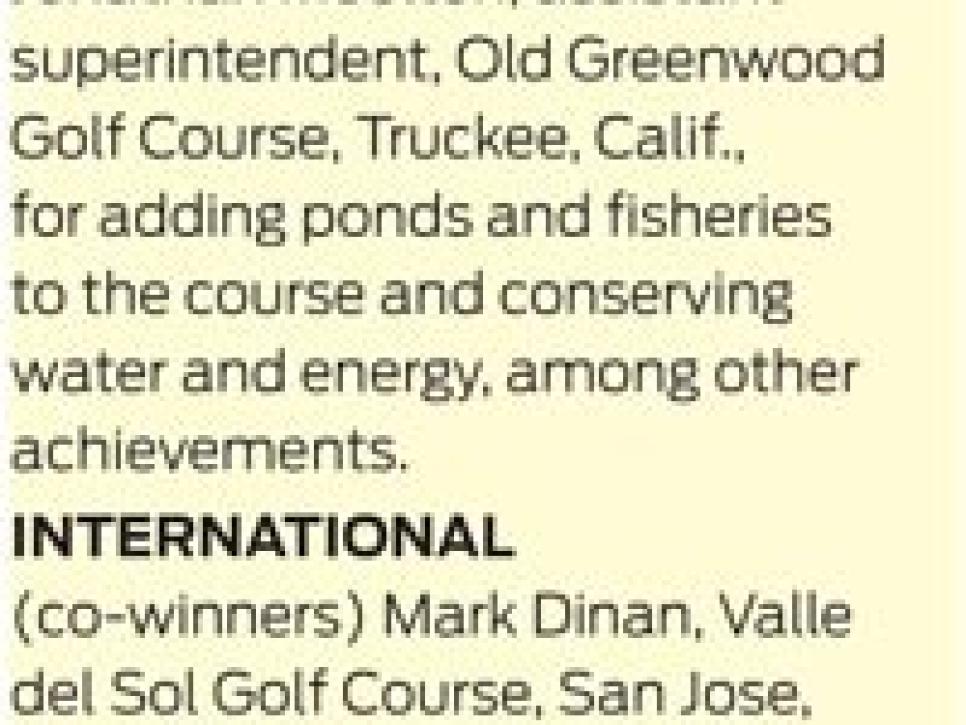Superintendent serves deep-fried fairways

A self-described "penny-pinching mad scientist" is behind the marvels at Marvel Golf Club in Benton, Ky., the overall winner of the 2007 Environmental Leaders in Golf Awards, cosponsored by Golf Digest and the Golf Course Superintendents Association of America.
Christopher S. Gray Sr., 36, maintains the two-year-old Arnold Palmer-Ed Seay design with a crew of six and a budget of $225,000, or less than what many superintendents earn annually. One of Gray's secrets is substituting vegetable oil for diesel fuel, and he rarely buys the oil off the shelf. He collects it from deep fryers of local restaurants.
"I got the idea watching the Discovery Channel," he says. If properly configured, a diesel engine can run on a combination of diesel fuel and cooking oil. So Gray made the complicated adjustments to his mowers and has been operating them this way ever since.

Gray says it costs about 57 cents a gallon to transport the cooking oil and filter it, quite a savings from the $3.50 per gallon price of diesel. Used oil from Asian restaurants is the best quality, he says. Hydrogenated oil from fast-food chains is the worst, gumming up the fuel lines even after filtration.
Marvel Golf Club is within a 498-acre residential development, but Gray irrigates only 83 acres. His main irrigation sources are wastewater collected from nearby homes (every new house is equipped with a personal treatment system to clean the water as it leaves) and rainwater collected in a series of ponds. Gray shut off 73 irrigation heads between tees and fairways and adjusted others so that 32 acres of native grasses around holes aren't irrigated. That saves water and electricity and provides firmer fairways and decent lies on a new type of Bermuda grass, a seeded variety that has proved to be pest-resistant.
His "naturalized areas" are now wildlife habitats, home to white-tailed deer, coyotes, wild turkey and an aerie of eight American bald eagles. Gray fitted seats into an old hay trailer to create an "environmental wagon" that he uses to take school children for tours around the golf course, pointing out the wildlife and other environmental highlights.
This is the second national honor for Gray. He was the original superintendent at Indiana's Lost Marsh Golf Course, which received our 2003 overall award.